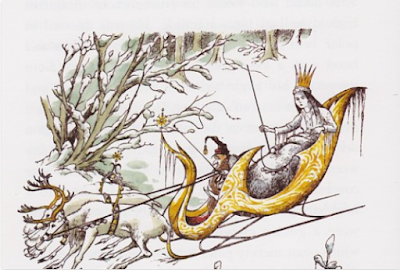This week's
Beyond Belief on Radio 4 was quite a bad-tempered affair at times.
It featured two Muslim converts and an infidel, and the two Muslim converts were surprisingly rude on occasions to the infidel - historian Tom Holland. (Ed - Fancy that! Who knew that Muslim converts could be so uptight and huffy?)
The programme discussed the Hadiths - the collected stories and traditions about Muhammed compiled after his death and held in high importance by Muslims.
The programme's guests were (to cite the descriptions provided by the BBC): Jonathan Brown, Prince Alwaleed bin Talal Chair of Islamic Civilisation at Georgetown University; Sahib Bleher, Imam and author on the Qur'an; and Tom Holland, a Classicist and author of several best selling books including In The Shadow of the Sword, on the origins of Islam.
This is the second time I've failed to warm to Sahib Bleher on Beyond Belief.
The last time I heard him he was being less than moderate in his denunciation of the 'heretical' Ahmedis.
Our Is the BBC biased? post at the time laid out the extraordinary record of this man, a co-founder of the Islamic Party of Britain. (He thinks 9/11 was organised by the U.S. and Israel, has described 7/7 as a "set-up", refers to the Holocaust as "the Holocult", and associates with the anti-Semitic far-right.)
Quite why Radio 4 keeps inviting him on is beyond me.
Professor Brown is much more respectable (if no less prickly). He's a distinguished academic after all.
The Prince Alwaleed bin Talal whose chair he holds at Georgetown University, if you were wondering, is a billionaire member of the Saudi royal family. He funds lots of Western universities. There's a Prince Alwaleed Bin Talal Centre of Islamic Studies at Cambridge University and
an Alwaleed Centre at Edinburgh University too.
For those who missed it, here's part of their discussion - the bit where Tom Holland stopped turning the other cheek.
It's well worth following closely not just for the good sense of Tom Holland, but also to study the slippery response of Sahib Bleher and the truly extraordinary arguments of Georgetown University's Professor Brown - arguments that even seemed to take presenter Ernie Rae aback. (Ernie Rae deserves credit here for asking the questions many an astonished Radio 4 listener would have wanted asking):
*****
Tom Holland: The classic example...I guess the single hadith that has caused most anxiety would be one which describes Aisha, the favourite wife of Muhammed, marrying him at six, and them Muhammed consummates the relationship when she is nine. People tended not to have a problem with this until quite recently, as under-aged sex has become ever more of a taboo, so this has provoked more and more anxiety among Muslim commentators, and various attempts have been madeto solve it - either by saying, "Well, this was the practice of the age", which is, of course, to relativise the prophetic model, or to say, "The chains of transmission by which we know this aren't reliable", which, of course, I would absolutely agree but, again, that is to problematise the relationship. Or possibly to go back and look at this hadith and to regard it not as sort of a literal detail, not as a snatch of historical information telling us what the historical Muhammed did, but as something more symbolic, something more representative of the significance of Aisha within the Muslim tradition.
Ernie Rea: Sahib?
Sahib Bleher: It's the usual mud slinging that's going on here again. A careful reading of the hadiths defined that Aisha was about five years younger than Fatima. That means that when she was betrothed to Muhammed then she must have been at least ten years old. It was another four years before she moved over to his household. so the marriage wouldn't have been married until she was fourteen or fifteen...
Tom Holland (interrupting): So
Bukhari is wrong?
Ernie Rea: So where does this story that she was nine when the relationship was consummated come from?
Sahib Bleher: Well, there are various reports. But this is the whole thing. You don't...
Tom Holland (interrupting): But they are canonical accounts of Hadith, aren't they? I mean, they are absolutely canonical.
Ernie Rea: Jonathan?
Jonathan Brown: I think it's an absolutely authentic report. In fact I think the scholar whose work does represent the state of the field in Western scholarship on Hadith, the German scholar Harald Motzki, if you were to take his methods of dating hadiths, I think you could date that report of Aisha back to actually about the time of Aisha, so I think...
Ernie Rea (interrupting): Contemporary reports, you're saying?
Jonathan Brown: Yes, I think that's accurate. I think even from a non-Muslim perspective it's a good argument that that goes back to Aisha.
Ernie Rea: So how do you reconcile this with your sense of modernity?
Jonathan Brown: Well, I reconcile it because nobody had a problem with this until 1905. I mean (laughing) there was just not an issue. Even Western scholars writing about Muhammed in 1800, even in the 20th Century, just didn't care about...
Ernie Rea (interrupting): So the problem is that you're using Muhammed as a moral exemplar. You're saying this is the person that we should follow and he had sex with his wife when she was just nine years old?
Jonathan Brown (interrupting): OK, OK, well, Muslim scholars have been very clear about this. You cannot have sex with someone who is not physically able to have sex. Just because the Prophet did something doesn't mean Muslims have to do it. In fact the Prophet himself in another hadith refused to marry his daughter to somebody he felt was too old for her. Just because the Prophet did something it means it's permissible in general. It doesn't mean you have to do it. And, in fact, it also doesn't mean that you can't make very good arguments that it's bad policy. I mean, if you look and you say now people go to high school and have ambitions of university degrees and they want to have careers in our day today, it might be very good policy for Muslims to say it's better not to marry until you're sixteen or eighteen years old. That's why if you look at most Muslim countries, now have age restrictions that are sixteen or eighteen years old.
Ernie Rea: Tom?
Tom Holland: Now, this is absolutely an illustration of the point that is possible when you have hadiths that are generally held to be reliable that by the moral standards, say, of the 21st Century secular liberal society are regarded as rebarbative it is possible to sort of essentially wash away the more unpalatable aspects of it - and that. obviously, has to be a process that I personally hope will carry on. But we also have to recognise that there are plenty of people out there who do still regard the fact that Muhammed slept with a nine year old as sanctioning them to do the same. And we have the evidence for that in the fate of the capture Yazidi girls. That is what is providing Islamic State with their sanction. So this is not a purely academic exercise. It is having a knock-on effect in the Middle East.
Ernie Rea: Jonathan?
Jonathan Brown: This idea that somehow what's happening to Yazidi girls in Iraq is caused by this hadith...an American soldier in Iraq was convicted by an American military court of raping and murdering an Iraqi child, and American soldiers sexually abused Iraqi children in Abu Ghraib prison...
Tom Holland (interrupting): They probably weren't saying that they were inspired by a religious leader.
Jonathan Brown: No, no, my point is...(laughing)...my point is that this kind of action of warfare is not just the purview of Muslims.
Tom Holland: No. No one is saying it is, but the issue is that Islamic State are sanctioning what they are doing...they are sanctioning slavery, execution, the rape of nine year olds by drawing on the hadiths. I'm not saying that is what every Muslim does. It's clearly not what has happened over the course of Islamic civilisation, but the fact that it is possible to use hadiths in this way seems to me a problem.
Jonathan Brown: There's families in Iraq and families in Afghanistan that gladly marry their children off at young ages not in a war time and not in situations where the Islamic State is taking over. So this is not just something that is being used by some extremist organisation. This is part of the culture in those areas.
Ernie Rea: But Jonathan, you don't think it's a problem that people like Islamic State and Boko Haram in Nigeria can use a hadith as justification for the sexual abuse of their captives?
Jonathan Brown: I think the problem is that they're engaging in the practices. I don't blame a body of tradition that's been around for 1400 years for the decisions of some group that exists today. I blame people who use and abuse the law for those decisions. I don't blame the legal tradition itself.















